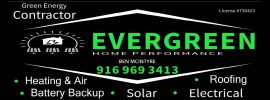Harnessing sunlight to power homes and businesses has become a groundbreaking shift in the global energy landscape. But the question many still ask is: how do solar panels work? Understanding the science behind solar energy helps you appreciate why it is one of the most sustainable solutions for the future. This article will explore the mechanics, benefits, and applications of solar panels, breaking down complex technology into simple, digestible insights.
Solar Panels: A Gateway to Renewable Energy
Solar panels are more than just shiny surfaces on rooftops. They are sophisticated devices designed to capture sunlight and transform it into usable electricity. By converting solar radiation into energy, they provide a clean alternative to fossil fuels, reducing both costs and environmental impact.
Unlike conventional energy sources, solar panels do not emit harmful greenhouse gases during operation, making them a vital player in combating climate change. This shift from non-renewable to renewable energy sources has positioned solar panels at the forefront of sustainable living.
The Science Behind Solar Panels
Solar panels function on the principle of the photovoltaic effect. In simple terms, they convert sunlight into electricity by allowing photons (light particles) to knock electrons free from atoms. This creates an electric flow that can be harnessed as power.
Photovoltaic Cells: The Core of Solar Panels
Every solar panel contains numerous photovoltaic (PV) cells, typically made of silicon. These cells act as semiconductors, generating electric current when exposed to sunlight. Each cell produces a small amount of electricity, but when combined, they generate significant power.
The Role of Direct Current and Alternating Current
Solar panels generate electricity in the form of direct current (DC). However, most homes and appliances run on alternating current (AC). This is where inverters come in — they convert DC into AC, ensuring compatibility with household systems.
Step-by-Step Process: How Do Solar Panels Work?
-
Sunlight Hits the Panels – Photons from sunlight strike the PV cells.
-
Electrons are Knocked Free – This creates an electric charge.
-
Direct Current (DC) is Generated – Electricity flows in one direction.
-
Inverter Converts DC to AC – Making it usable for homes and businesses.
-
Electricity Powers Your Home – Lights, appliances, and devices run on solar-generated energy.
-
Excess Power Goes to the Grid – Extra electricity is fed into the local power grid, often earning credits.
-
Monitoring Systems Track Performance – Smart technology ensures maximum efficiency.
This seamless process explains why solar panels are often described as “silent power plants” operating on rooftops.
Types of Solar Panels
Not all solar panels are the same. The type you choose depends on efficiency, cost, and intended use.
Monocrystalline Solar Panels
-
Made from a single continuous crystal structure.
-
High efficiency and long lifespan.
-
Sleek black appearance, often preferred for aesthetics.
Polycrystalline Solar Panels
-
Made from multiple crystal fragments.
-
Slightly lower efficiency but more affordable.
-
Blue speckled appearance.
Thin-Film Solar Panels
-
Flexible and lightweight.
-
Lower efficiency but easier to install.
-
Often used in portable applications and large-scale projects.
Solar Panels in Everyday Life
Solar panels are no longer limited to large corporate or government projects. They are increasingly powering residential homes, schools, businesses, and even remote villages.
-
Residential Rooftops: Homeowners save money on electricity bills.
-
Commercial Installations: Businesses cut costs and boost sustainability credentials.
-
Off-Grid Applications: Solar panels power cabins, boats, and rural areas without access to the main grid.
Advantages of Using Solar Panels
-
Clean Energy Source – Reduces carbon footprint.
-
Lower Utility Bills – Generates free electricity from the sun.
-
Energy Independence – Reduces reliance on fossil fuels.
-
Low Maintenance – Panels require minimal upkeep.
-
Increases Property Value – Homes with solar installations often sell at higher prices.
Challenges of Solar Panels
While solar panels offer immense benefits, they are not without limitations.
-
Weather Dependency – Less effective on cloudy or rainy days.
-
High Initial Costs – Though prices are dropping, installation requires investment.
-
Space Requirements – Large roofs or open areas are needed for higher power generation.
-
Energy Storage Costs – Batteries for nighttime use can be expensive.
Solar Panels and Net Metering
One of the most exciting aspects of solar panels is net metering. When your panels produce more electricity than you use, the excess is fed into the local power grid. In return, you receive credits on your electricity bill. This system allows homeowners to maximize their solar investment and enjoy financial benefits.
The Future of Solar Panels
Solar panel technology continues to evolve rapidly. Researchers are developing panels with higher efficiency rates, transparent solar cells for windows, and even solar paint. As innovation grows, solar power is expected to become even more accessible and cost-effective.
How Do Solar Panels Work in Winter?
Many assume solar panels are ineffective in winter, but this is a misconception. While shorter days reduce sunlight hours, panels still generate electricity even in cold, snowy conditions. In fact, cooler temperatures can improve efficiency since extreme heat sometimes reduces panel performance.
How Do Solar Panels Save Money?
Solar panels reduce reliance on utility providers. While the upfront cost can be significant, most homeowners see returns within 5-7 years through savings on electricity bills and incentives. Over a 25-year lifespan, the savings can amount to tens of thousands of dollars.
FAQs
How do solar panels work at night?
They don’t generate power at night, but stored energy in batteries or net metering ensures continuous supply.
Do solar panels need direct sunlight to work?
No, they can generate electricity on cloudy days, though efficiency is reduced.
How long do solar panels last?
Most solar panels last 25–30 years with minimal maintenance.
Can solar panels work without an inverter?
They can produce DC electricity, but without an inverter, it cannot power standard home appliances.
Are solar panels environmentally friendly?
Yes, they reduce greenhouse gas emissions significantly compared to fossil fuels.
What happens to solar panels during power outages?
Unless equipped with battery storage, most systems shut down for safety during grid outages.
Conclusion
So, how do solar panels work? They convert sunlight into electricity through photovoltaic cells, powering homes and businesses while reducing environmental impact. Though the initial investment may seem steep, the long-term financial and ecological benefits make solar panels an excellent choice for a sustainable future.
If you’re considering renewable energy solutions, solar panels stand out as one of the most effective, eco-friendly, and financially rewarding options available today.



